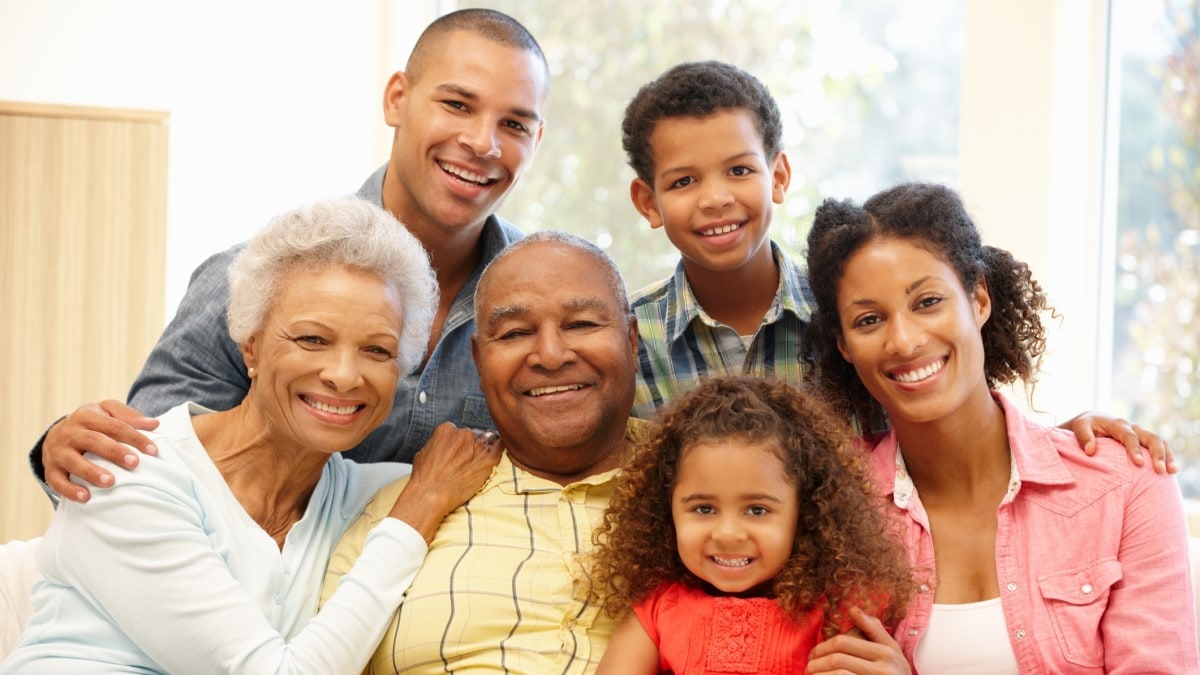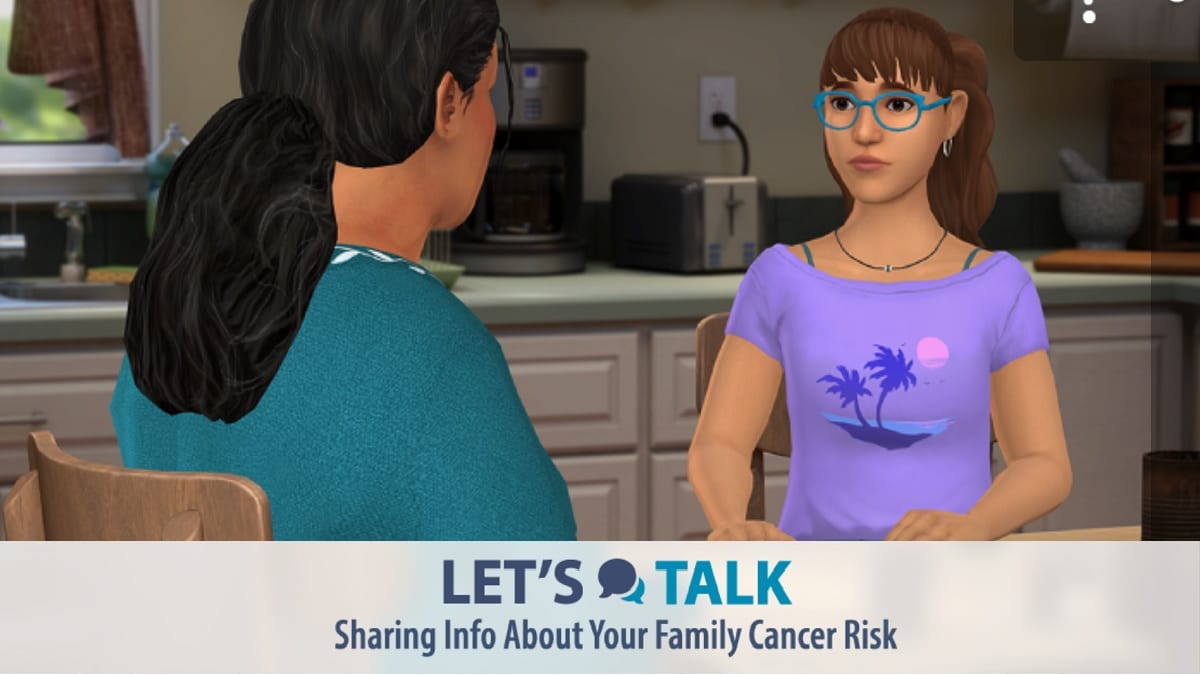Key points
- Learn your family’s history of cancer and share it with your doctor.
- If you have a family history of certain cancers, you may have a higher risk for developing these cancers.

Overview
Your family health history is a record of diseases and conditions that run in your family. Your family members may share habits, environments, and changes in certain genes that can affect your risk of getting cancer.
My Family Health Portrait: Cancer app
Bring It to the Table: Understanding Your Family’s Cancer Risk
Sometimes the conversations we try to avoid are the most important ones to have. This video explains the importance of talking to your loved ones about your family cancer history.
What information do I need?
Gather information about yourself and your relatives who are related to you by blood, including:
- Parents and grandparents.
- Aunts and uncles.
- Sisters and brothers.
- Nieces and nephews.
- Children.
Don't include stepsiblings, stepparents, stepchildren, and other people in your family who are not your blood relatives.
If possible, information should include:
- Who had cancer and what specific kinds did they have?
- How old were they when they were diagnosed with cancer?
- Are they still living? If not, at what age did they die and what caused their death?
If you can’t find out all this information, collect as much as you can. Some information is better than none.
How do I collect family health history information?
Take time to ask about your family history of cancer at family gatherings. Respectfully ask your relatives to help fill in the gaps and confirm what you remember. Also, look through any family records, death certificates, or obituaries.
You can use CDC's My Family Health Portrait: Cancer app to collect this information. Android users can download it from Google Play and iOS users can download it from the App Store.
Let’s Talk: Sharing Info About Your Family Cancer Risk

This interactive tool helps you learn ways to talk about cancer risk with your family.
Do I have a higher risk of getting cancer?
If you have a family history of breast, ovarian, uterine, or colorectal cancer, you may have a higher risk for developing these cancers.
Tell your doctor if:
- A relative was diagnosed before age 50 with uterine, breast, or colorectal cancer.
- Two or more relatives on the same side of the family were diagnosed with uterine, breast, or colorectal cancer.
- A female relative was diagnosed with ovarian cancer.
- A male relative was diagnosed with breast cancer.
- You have an Eastern European or Ashkenazi Jewish ancestry.
Telling your doctor about your family health history is the first step to find out if you may have a higher cancer risk. It could help you and your doctor decide what tests you need to screen for cancer, when to start, and how often to be tested. Knowing your family health history also helps you and your doctor decide if genetic counseling or testing may be right for you.
What is genetic counseling and testing?
If your family health history suggests that you may have a higher cancer risk, your doctor can refer you to genetic counseling.
A genetic counselor is a specialist who asks you about your health history and your family’s health history and helps you decide if genetic testing is right for you. A genetic test uses your saliva or blood to look at your DNA. By looking for changes in the DNA, sometimes called mutations, the test can tell you whether you may have a higher risk of developing cancer than most people.
What should I do if I have a genetic mutation?
Having a genetic mutation does not mean you will get cancer. You can do things to lower or manage your cancer risk. Talk to your doctor about:
- Tests. You may need to start getting screening tests earlier and get tested more often, or with different tests than other people.
- Medicine or surgery that could lower your cancer risk.
- Making healthy choices like quitting smoking, drinking less alcohol or not drinking at all, exercising regularly, and keeping a healthy weight.
Which hereditary conditions raise my chances of getting cancer?
Several hereditary conditions can raise your chances of getting cancer. Two of the most common are hereditary breast and ovarian cancer (HBOC) syndrome and Lynch syndrome.
- People with HBOC syndrome have a higher risk for breast, ovarian, advanced prostate, and pancreatic cancers.
- People with Lynch syndrome have a higher risk for colorectal, uterine, and ovarian cancers.
